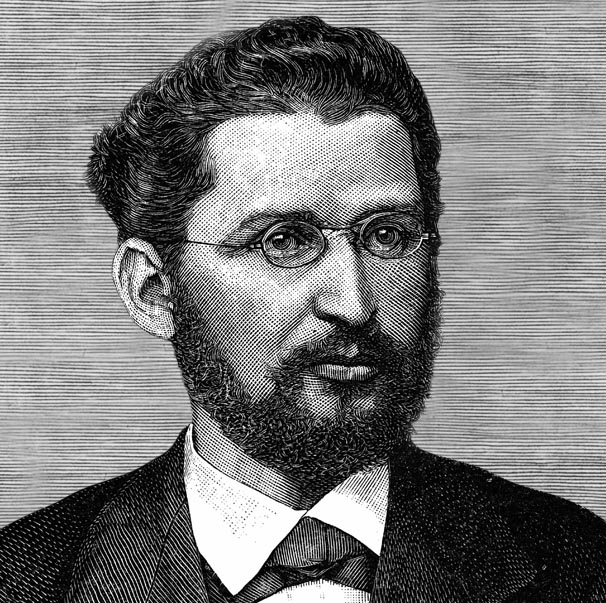
IN CONTEXT
Socialism
Revisionism
1848 Karl Marx and Friedrich Engels publish the Communist Manifesto.
1871 The German Social Democratic Party (SPD) adopts Marxism, voting to accept the Gotha Programme—a radical socialist manifesto.
1917 The October Revolution overthrows the capitalist system in Russia.
1919 A communist revolution in Germany is put down.
1945 A Labor government is elected in the UK on a platform of welfare reform to create a mixed economy.
1959 The SPD formally repudiates Marxism at the Bad Godesberg Conference.
By the early 1890s, the left-wing German Social Democratic Party (SPD) had reasons for optimism. A decade of illegality from 1878 had merely strengthened its support. As the leading party of European socialism, its progress was followed by leftists across the continent, and debates within its ranks set the intellectual framework in which the movement operated. When it was legalized in 1890, the SPD looked to be set for power.
Yet there was a problem, as leading SPD member Eduard Bernstein pointed out. The party was dedicated to a socialist future and its policy was guided by Marxism. But as the party became more established, and without the pressure-cooker conditions of illegality, its day-to-day activities lacked direction. While SPD members still pronounced on the need for the transformation of society, in practice it followed a gradualist path, eking out changes through parliamentary legislation.
"In all advanced countries we see the privileges of the capitalist bourgeoisie yielding step by step to democratic organizations."
Eduard Bernstein
Bernstein challenged this contradiction head on. From the 1890s, he argued that many of Marx’s predictions—such as the inevitable impoverishment of working people and their march towards revolution—had failed to come true. Rather, capitalism was proving to be a stable system under which minor reforms could be won, leading step by step to socialism.

Gradual change
The publication of Bernstein’s Evolutionary Socialism in 1899 fueled a battle within the SPD that would define the key argument for socialist thinkers over the next century. Was capitalism to be accepted, and minor improvements won—or was it to be overthrown? At the heart of this debate was an argument over what happened in workers’ heads. For Marx, the working class would lead society into socialism once it realized its potential to do so. But in reality, “class consciousness”—awareness of class—had led not to revolutionary conclusions, but to workers voting, in increasing numbers, for a party that offered piecemeal reforms within the capitalist system.
Bernstein proposed abandoning the idea that workers would come to revolutionary conclusions. Instead, socialists should examine workers’ existing beliefs about the world, and work outward from that point. This was the first theoretically robust case for a “reformist,” or gradualist, socialism.
Orthodox Marxists responded ferociously, and Bernstein’s views were never formally adopted by the SPD in his lifetime. It was not until the Bad Godesburg conference of 1959 that the party formally renounced Marxism. Nonetheless, its actual political activity had long been following the lines Bernstein had advocated, whatever its declared intentions.

Workers in Germany have won the right to strike for better pay and conditions. Bernstein saw that the working class could win significant concessions within capitalism.
EDUARD BERNSTEIN

Bernstein became a socialist at the age of 22, joining the Marxist wing of Germany’s socialist movement. With the passing of the Anti-Socialist Law in 1878, which banned socialist organizations, he fled to Switzerland and then London. He joined other exiles including Friedrich Engels, with whom he developed a close working relationship.
Bernstein returned to Zurich to become editor of the newspaper of the newly united Social Democratic Party (SPD). After the party was legalized in 1890, he began to argue in the paper for a more moderate, “revisionist” form of socialism. He returned to Germany in 1901 and was elected a member of the Reichstag the following year. His opposition to World War I led him to break with the SPD in 1915, founding a new organization, the USPD. He was reelected as an SPD member of parliament from 1920 to 1928.
Key works
1896–98 Problems of Socialism
1899 The Prerequisites for Socialism and the Tasks of Social Democracy
See also: Karl Marx • Vladimir Lenin • Rosa Luxemburg
